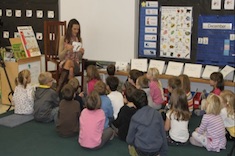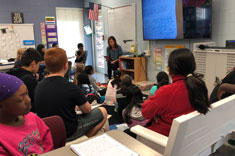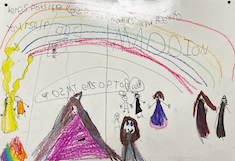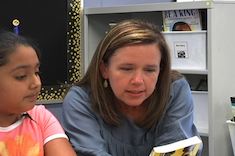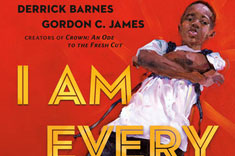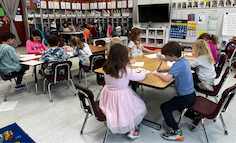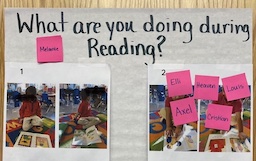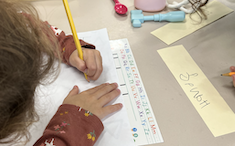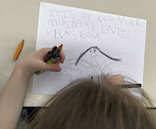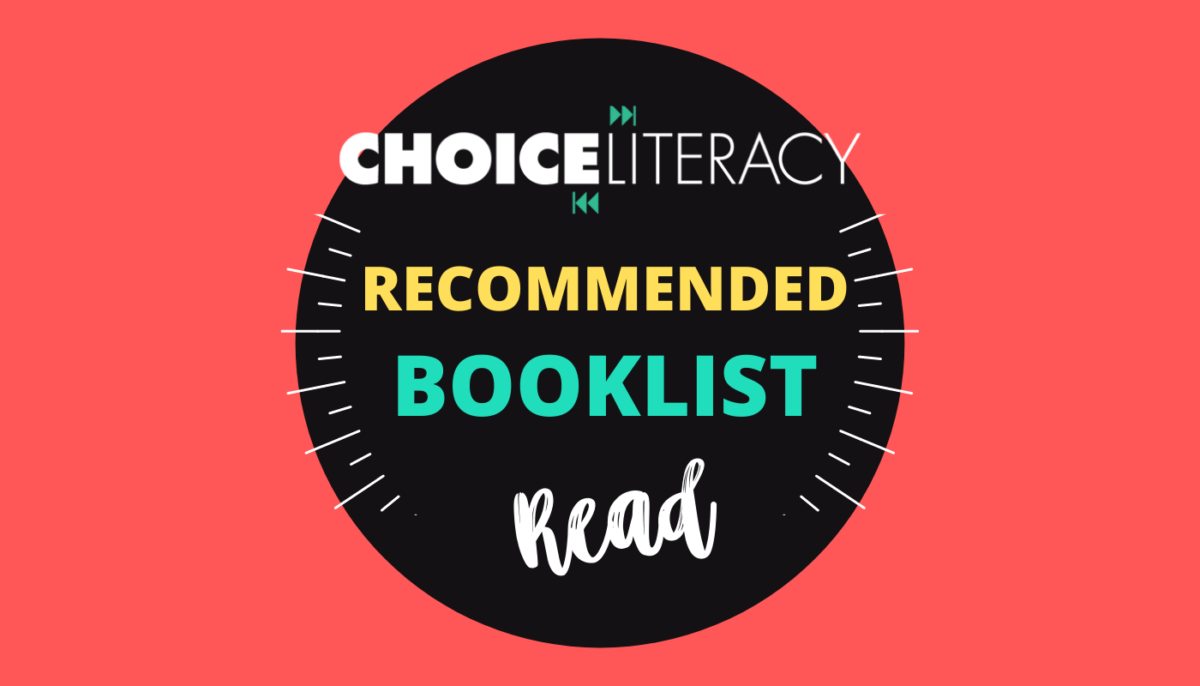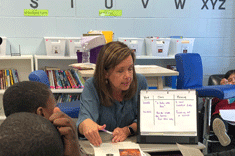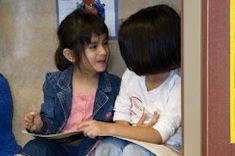2nd
Latest Content
Bet You Didn’t Know: Chicken Eggs and Research
Mandy Robek encourages young writers to collect information about a topic. She provides whole-class and individual structures for students to learn that their understanding can change, as well as to be able to access information when they are ready to draft. Don’t miss Mrs. Robek’s digital class book.
Poetry Friday Stretches Into Poetry Slam
Mandy Robek shares an update to her Poetry Friday routine inspired by the professional book Artfully Teaching the Science of Reading by Chase Young, David Page, and Timothy V. Rasinski. You, too, will want to incorporate this poetry routine into your week.
Fostering Math Identities with Picture Books
Mandy Robek uses picture books to help her students build their identities as mathematicians. Mandy shares the process and a booklist.
Developing and Listening to Your Inner Voice During Minilessons
Katie Linder reminds us of the importance of listening to (or ignoring) our own inner voices when delivering whole-group instruction. Katie guides us in using our inner voices to make in-the-moment decisions that sharpen lessons.
The Art of Noticing: Have Your Students Played with Language Today?
Stella Villalba noticed her students were so busy writing quickly, they were not paying attention to crafting language. A student, Gabriela, turns to a book and asks for help to make her writing sound like the book. Stella uses this moment to slow down the class and create space to be inspired to write in beautiful ways.
Leveraging AI in Elementary Literacy
David Pittman offers practical and time-saving tips for using AI to help make instructional plans. Need a rubric or discussion questions? David shows how using AI offers a springboard for creating tools for elementary literacy instruction.
Writing Will Help
Becca Burk’s kindergartners had a tough recess. As they were discussing what they could do differently, one student proclaimed, “Mrs. Burk, writing, writing will help!” Becca shares what unfolded as students made a plan and created signage to post around the playground as reminders for self-control.
Partnering Phonics and Poetry
Jen Court gets creative with using materials for more than one skill to layer in additional phonics instruction and practice. Jen provides a guide to think critically about reusing resources throughout the day and across content areas. Download the Planning Tool for Phonics Lessons.
My Teaching Toolbox (Part 2)
Dana Murphy reminds us that having a teaching toolbox makes planning efficient and effective. In this second installment of a two-part series, Dana offers two additional approaches to delivering strong reading instruction.
Small Shifts That Make a Big Difference
Dana Murphy names two practices that made a big difference in her work as a reading specialist. You may be surprised at the simplicity and smallness that led to powerful gains in her readers.
Holding Space for Counter-Narratives That Honor Communities
Stella Villalba guides us to expand the counter-narrative texts we use in our classrooms. Counter-narrative texts challenge the stereotypes often seen about a group of people, and they celebrate the joy and resilience of a community. Stella provides a list of critical questions that allow us to deeply explore texts, as well as suggestions of books to read.
Let’s Write Together: The Importance of Class Books
Jen Court considers whether creating class books is a valuable use of time for today’s young students. As she teases out this question, she realizes class books are a relevant and essential instructional strategy.
Everyone Wants to Write?
Becca Burk reflects on creating a classroom where everyone wants to write. She offers timely advice for creating a community of writers.
Creating Learning Progressions with Students
Tara Barnett and Kate Mills outline the steps to involve students in defining how to progress as readers and then set goals. They offer a practical plan for empowering students to take ownership of their learning.
Managing Your Students’ Independent Work During Guided Reading
Are you ready to ditch small-group instruction because it seems too difficult for students to work independently? Lisa Mazinas compiled a helpful chart to problem solve common classroom issues and support student independence.
Developing Independent Writers
Vivian Chen tackles the difficult topic of helping students become independent as writers. She offers tips for before, during, and after writing time to uplift student agency.
Learning from Our Favorite Illustrators
Ruth Metcalfe tapped a plethora of resources to help her first-grade writers understand how to communicate meaning with illustrations.
The Language We Use and How It Strengthens Understanding
Suzy Kaback explores the importance of the way teachers use language and invite kids to use theirs. It is the key to knowing ourselves, tuning in to others, and understanding the larger world.
What’s Your Point of View?
Molly James helps us develop an essential point of view for uplifting choice in decision making for young writers and readers.
Alert! Mistakes in Progress
Becca Burk gives the science behind mistakes and growth, and offers suggestions on ways to use mistakes as a means to help students become critical thinkers and problem solvers.
Overcoming Challenges in Writing Workshop with Trauma-Informed Practices
Ruth Ayres shares three mindsets to help teachers prioritize connection over correction when teaching writers.
Young Author Celebrations
Jennifer Court shares the celebrations that propel students to engage in the Young Authors Program.
It’s Time to Admire: Sharing in the Beauty of Students’ Writing
Heather Fisher shares a process to help teachers learn to admire student writers and find the beauty in their work.
Opinion Writing in Primary Grades: Layers of Support
Ruth Metcalfe suggests several layer of supports to uplift young writers as they begin to write their opinions.
Taking a Stance: Supporting Opinions in Primary Writers
Josie Stewart and Hannah Tills expand their view of opinion writing to taking a stance, and are reminded of the power of choice and honoring student passions and interests. At the same time, students are reminded that their voice is heard and their opinions matter.
Energizing Early Readers: The Classroom Library as a Co-Teacher (Booklist)
Ruth Metcalfe shares a fun-loving and inspiring early reader booklist to help boost reading energy in her classroom library.
Five Ways to Teach Fluency
Dana Murphy reminds us of five ways to teach fluency…especially when reading seems laborious.
Six Tips to Plan a Family Literacy Night
Does planning a family literacy night seem overwhelming? Lisa Mazinas offers six tips to ensure a thoughtful and successful event.
QuickTake: Choice in Making Plans for Writing
Ruth Ayres shares the importance of giving students choice when planning their writing projects.
Validating Students
When an excited young reader interrupts the quiet hum of reading workshop, Becca Burk analyzes the important unseen choices students make as learners, and the powerful messages teachers’ responses send.
Browse Content By
Type
Category
- Assessment Tools
- Big Fresh Archives
- Booklists
- Choice Numeracy
- Classroom Design
- Common Core
- Community Building
- Conferring
- Content Literacy
- Digital Literacy
- English Language Learners
- Equity
- Family Relations
- Free Samples
- Guiding Groups
- Leadership
- Literacy Coaches
- Mentor Texts
- Minilessons
- New Teacher Mentors
- Podcasts
- Poetry
- Quote Collections
- Reading Strategies
- Self Care
- Struggling and Striving Learners
- Talking and Listening
- Teacher Study Groups
- Teaching Reading
- Teaching Writing
- Word Study and Vocabulary
Author
- Melissa Quimby
- Nawal Qarooni
- Gwen Blumberg
- Julie Cox
- The Lead Learners
- Hannah Tills
- Josie Stewart
- Ruth Metcalfe
- Mallory Messenger
- Becca Burk
- Jodie Bailey
- Vivian Chen
- Mary Brower
- Tiffany Abbott Fuller
- Stephanie Affinito
- Ruth Ayres
- Leigh Anne Eck
- Heather Fisher
- Shari Frost
- Julie Johnson
- Suzy Kaback
- Gigi McAllister
- Shirl McPhillips
- Melanie Meehan
- Cathy Mere
- Debbie Miller
- Tara Barnett and Kate Mills
- Tammy Mulligan
- Dana Murphy
- Bitsy Parks
- David Pittman
- Brenda Power
- Heather Rader
- Matt Renwick
- Mandy Robek
- Christy Rush-Levine
- Gretchen Schroeder
- Jen Schwanke
- Brian Sepe
- Katherine Sokolowski
- Stella Villalba
- Jennifer Vincent
Grade Level
Choice Literacy Membership
Articles
Get full access to all Choice Literacy article content
Videos
Get full access to all Choice Literacy video content
Courses
Access Choice Literacy course curriculum and training


